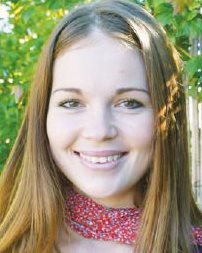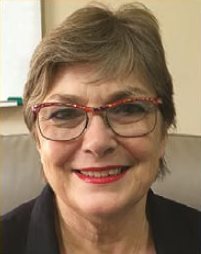Aboriginal and Torres Strait Islander Peoples and Psychology Interest Group
Indigenous Student Conference Attendance Award
 Debra Fernando, APS Student Subscriber
Debra Fernando, APS Student Subscriber
Debra Fernando is an Aboriginal Kamilaroi woman from the Kamilaroi nation located in far North West NSW studying a Bachelor of Psychological Science at Southern Cross University (SCU) in Coffs Harbour. Debra is a co-founder of the Aboriginal Student Kinship (student body) and was nominated for the SCU UniLife Award in 2015.
Debra aspires to undertake her Honours and then pursue a PhD. She is passionate about mental health and social and emotional wellbeing for Aboriginal and Torres Strait Islander people. It is envisaged that attending the APS Congress will further inspire her towards her goals in the field of psychology. The conference will also help to provide a better understanding of the discipline, whilst enabling her to gain support and network with psychologists including Indigenous psychologists.
Psychologists For Peace Interest Group
Psychologists for Peace Project Award

Maddison Norton
Thesis title – Community understandings of humanitarian entrants: An investigation of Coffs Harbour
The primary purpose of this award is to encourage a wider interest in research and practice related to peaceful means of resolving conflict, understanding and preventing aggressive behaviour, and the fostering of harmonious relationships at global, inter-group and interpersonal levels.
In line with this aim, Maddison Norton’s thesis makes a useful theoretical contribution to social representations theory and her research is an excellent example of the efficacy of social-psychological theory in furthering our understanding of inter-group conflict.
Maddison’s thesis has a very important practical contribution to make to the community in which she lives and studies. The award selection committee felt it would have immediate applicability to changing community attitudes and understanding. Her thesis findings could be used to encourage the local media to report on the diversity of people who make up the Coffs Harbour community.
Psychologists In Schools Interest Group
Outstanding Practitioner Award
 Judith Scarfe, MAPS
Judith Scarfe, MAPS
Judith Scarfe has demonstrated an extensive commitment to the practice of school psychology through her current role, of more than 20 years, as the College Psychologist at Copperfield College. Judith is known for her willingness to drop everything to support young people who are refugees, homeless, or targets of domestic violence and lists "working with adolescents in a counselling capacity every day" as a career highlight. She demonstrates innovation in her practice through implementing preventative programs in schools and in particular seeking to have clients self-refer rather than wait for an adult to refer young people to the counselling service.
She contributes to the wider psychology community through supervision of Masters and PhD students, participation in her regional welfare group, serving on an APS Interest Group (Child, Adolescent and Family) Committee, giving guest lectures, and a secondment to the Victorian Department of Health and Human Services to provide outreach to bushfire victims.
Psychology And Ageing Interest Group
Elsie Harwood Award
 Laura Turner, APS Student Subscriber
Laura Turner, APS Student Subscriber
Thesis title – The needs and experiences related to driving and driving cessation for people with Parkinson’s disease and their families: Developing approaches to improve outcomes
Using a descriptive phenomenological approach, Laura investigated the experience of driving and driving cessation for people affected by Parkinson’s disease (PD). Twenty participants with PD and 13 family members participated in the study and data was collected through the use of semi-structured interviews. The finding of her research indicated that the process of driving cessation for people with PD and their families is complex, and this complexity is exacerbated by the fluctuating nature of the disease. Laura’s thesis contributes positively to the field of psychology and ageing through suggested interventions for people with the disease and their families.
Psychology And The Environment Interest Group
Climate and Psychology Student Research Award
 Elise Bryant
Elise Bryant
Thesis title – Personality and “eco-type”: Using the big five to predict combinations of eco-attitudes and eco-behaviours
Elise Bryant noted the relevance of her research project examining the relationship between personality traits and eco-types in relation to climate change risk mitigation. The concept of eco-type classification system (active-greens, passive-greens, non-greens, and honeybees) identified via a median split method for eco-attitudes and eco-behaviours to create a high/low dichotomy provided a useful classification to examine the predictive power of personality traits in differentiating between eco-types. A cross-sectional correlational study was conducted to test the hypothesised relationships.
A great deal of thought and exceptional understanding of the subject matter was evident in the design and conduct of the study, which was commended, particularly given that the research is at an Honours level.
To further endorse this study, Elsie’s supervisor, stated this “thesis represents the best of APAC-accredited Honours projects: originality, rigor and real-life applicability”.
Psychology Of Diverse Bodies, Genders And Sexualities Interest Group
Psychology of Diverse Bodies, Genders and Sexualities Interest Group Award
 Carey Little MAPS
Carey Little MAPS
Thesis title –“It kind of sort of crept up”. Australian lesbians talk intimate partner violence
Carey Little's thesis made a strong contribution to understanding the landscape of intimate partner violence (IPV) in lesbian relationships.
The award selection committee noted that Carey’s thesis captured the complexity of the issue well, contained good-quality analysis, and made a contribution to the existing literature.
This research highlights a key area of concern; IPV for lesbians is real, and often they don’t seek help because they don’t see IPV in ways broader than physical violence. The loss of self-esteem and identity was also a key theme.
Critical points that assist the reader to understand the lived experience of lesbians and provided useful cornerstones for therapeutic work with lesbian clients were apparent.
Psychology Of Intellectual Disability And Autism Interest Group
Thesis Award for Studies in the Psychology of Intellectual Disability and Autism
 Hannah Kirk
Hannah Kirk
Thesis title – Attention deficits in children with intellectual and developmental disabilities: Evaluating the impact of computerised cognitive training
Hannah Kirk’s thesis was lauded as a well-constructed clinical trial, incorporating a control group and double-blind assessment of outcomes. The thesis indicates that direct intervention to address attention has the potential to increase the skills and subsequent real-world potential of children with disability. This is a very important finding, and provides much needed evidence to progress (and fund) computer-based educational interventions for children with identified learning disabilities.
It is the perennial and understandable question of parents following diagnosis as to “what can be done for my child;” this excellent study represents a considered response to this question.
Psychology of Relationships Interest Group
Psychology and Relationships Thesis Award
 Yixin Jiang
Yixin Jiang
Thesis title – How do I love thee? Adult attachment and reinforcement sensitivity
Yixin’s thesis makes a contribution to theory in the psychology of relationships and did a thorough job in accounting for motivational systems literature (Behavioural Approach System, the Fight-Flight-Freeze System, and the Behavioural Inhibition System within the reinforcement sensitivity theory area).
The triangulation of outcomes across three studies using multiple methods (self-report, simulated behaviour, psychophysiological assessments) integrating two literatures (attachment and motivational systems), helped clarify relationships between the two bodies of work, and outlined useful directions for future research.
The conceptual overlap between attachment and reinforcement sensitivity is considerable and little work has been undertaken to examine this relationship. Yixin published her first study in the journal, Personality and Individual Differences, further demonstrating her contribution to the psychology of relationships research literature.
Rural And Remote Interest Group
Fourth Year Student Prize
 Dr Wendy Kennedy MAPS
Dr Wendy Kennedy MAPS
Thesis title – Neighborhood satisfaction as a predictor of subjective wellbeing in rural and urban groups
Dr Wendy Kennedy has made a unique contribution to the field of rural psychology. It is noted her thesis has considerable power due to the large database. Additionally, Wendy’s thesis employed a sound use of methodology and her theoretical premise was well-argued. Further comments noted that the thesis was a well-written solid piece of academic work.
Findings were consistent with previous research, such as the ‘feedback from rural communities after cyclone Yasi; that it was the opportunity to get together and support each other that was more beneficial than other strategies provided'. In this way, Wendy’s study went beyond the confirmation of what those living in rural areas have long felt.
Women And Psychology Interest Group
Elaine Dignan Award (two awardees)
 Khandis Blake, APS Student Subscriber
Khandis Blake, APS Student Subscriber
Khandis Blake’s record as a feminist researcher in social psychology demonstrates a keen commitment to supporting women’s issues. Her Honours thesis in psychology and subsequent PhD work focused on sexual aggression and female agency. Her research is innovative, combining perspectives from social psychology and behavioural endocrinology, and has generated five published papers in two years (all but one of them first-authored by Khandis).
Khandis’s work improves the lives of women through disputing the dubious claims that female hormones influence behaviour and previous research suggesting a relationship between wearing red and inviting sexual assault. This work has practical implications for future research and for society, bridging psychological and biological approaches to gender in a sensitive and sophisticated way.
 Charlene Halfhyde MAPS
Charlene Halfhyde MAPS
Charlene Halfhyde has dedicated her career to providing quality psychological services to women, as well as community education, support and advocacy, predominantly via her women-focused private practice based in Cairns. Charlene is passionate about the issues women in rural and remote communities face, including the lack of services and opportunities typically available in these areas. She has provided psychological therapy and counselling on a wide range of psychosocial issues affecting women across the lifespan for more than 12 years, including trauma and abuse, disordered eating, self-esteem and body image, perinatal mental health and fertility. Charlene also works in the community to ensure that women in rural and remote areas have access to information and education from qualified professionals on matters that affect their health and wellbeing.
A number of APS Interest Groups offer awards each year that encourage and recognise excellence in the psychological area relevant to the Interest Group. The 2016 recipients are profiled below.